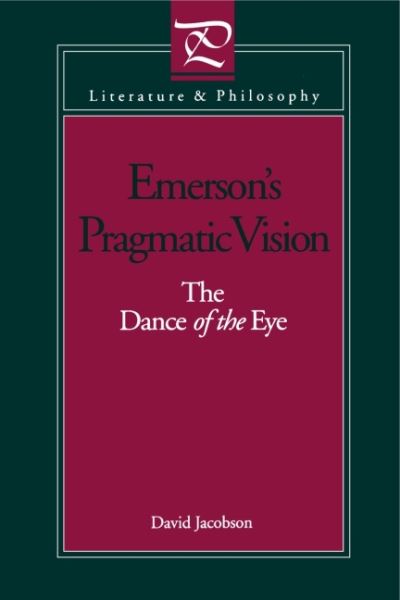
The long ignored philosophical content of Emerson's writings has recently emerged as a central topic in Emerson studies. In Emerson's Pragmatic Vision, David Jacobson enters the discussion, placing Emerson in a line of philosophers from Kant and Hegel to Heidegger and Derrida, and adding to our understanding of his philosophical appropriations and anticipations. In the process Jacobson shows how Emerson grappled not only with basic issues of philosophy but eventually with the value of philosophical discourse itself. Conceiving Emerson's writings as reflective of a continuous inquiry into the fundamental question that motivates philosophy and guides reason-the question of Being-Jacobson traces his movement through philosophical humanism and anti-humanism to his identification of a philosophy founded on a reconceptualization of individual practice.
Emerson's Pragmatic Vision depicts not two Emersons but three. Between the early humanist confidence in self-reliance and the late embrace of fate, Jacobson identifies a transitional period, enunciated in the stark lecture, "The Method of Nature" (1841), and typified by the pessimism and humanist nostalgia of "Experience." The doctrine of fate, Emerson's mature pragmatic philosophy, is presented as a response to this period in which is found Emerson's retrieval of a philosophical posture rooted in obedience to the eloquence of the practice of life.
| ISBN: | 9780271026459 |
| Publication date: | 15th September 1993 |
| Author: | David Jacobson |
| Publisher: | Penn State University Press |
| Format: | Paperback |
| Pagination: | 220 pages |
| Genres: |
Literature: history and criticism |